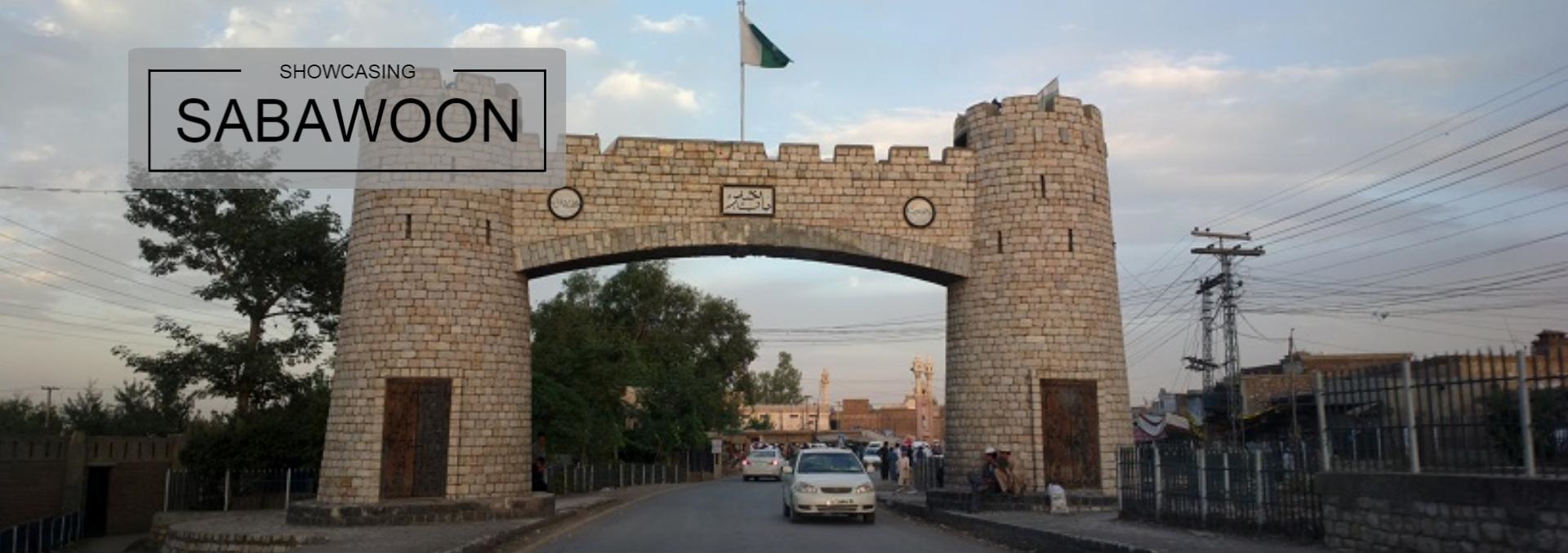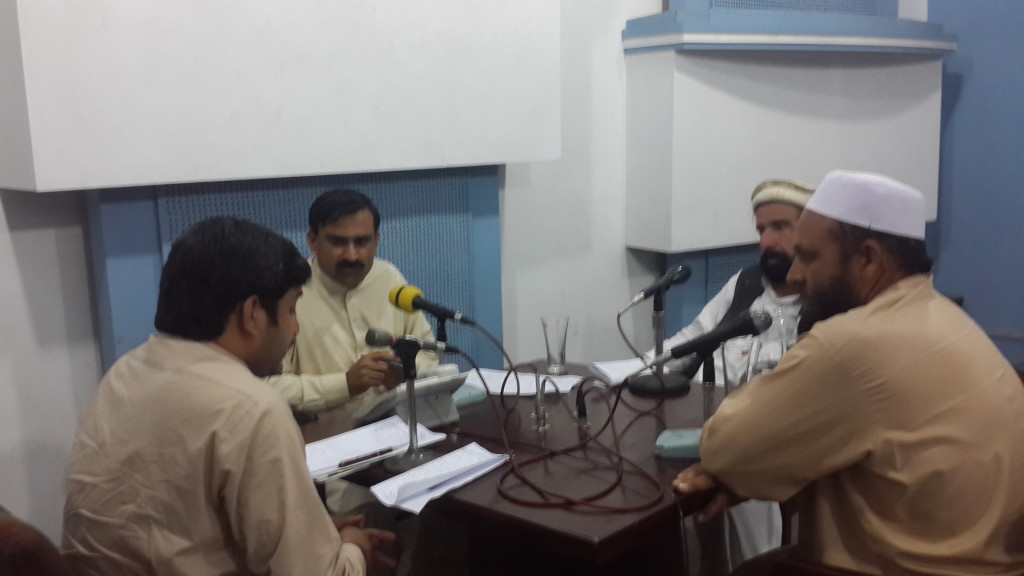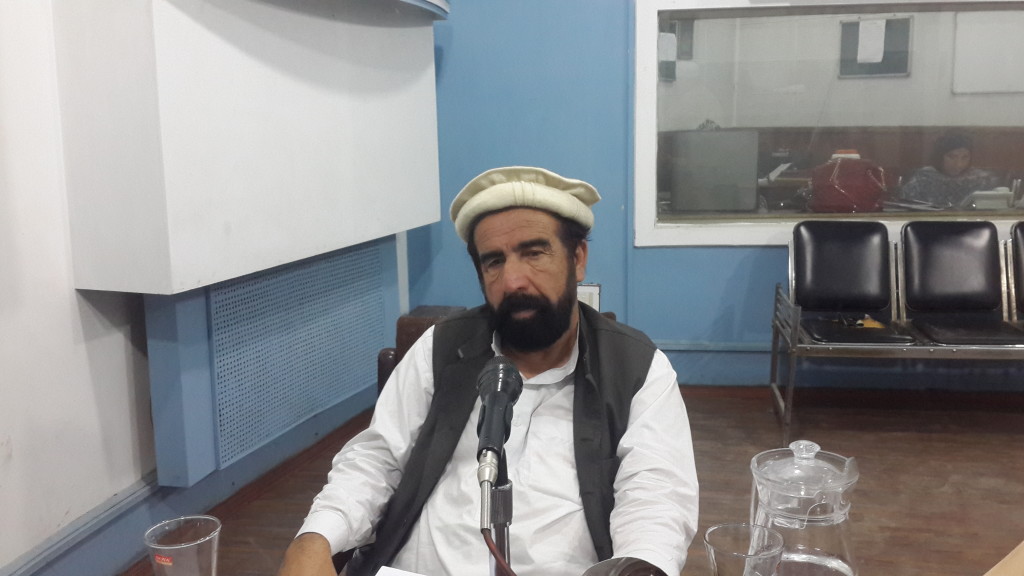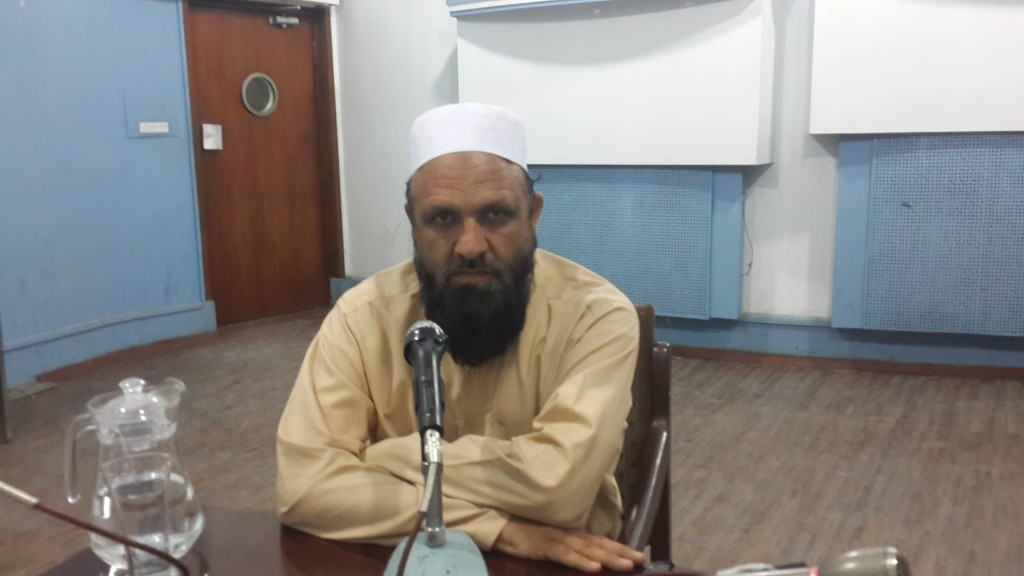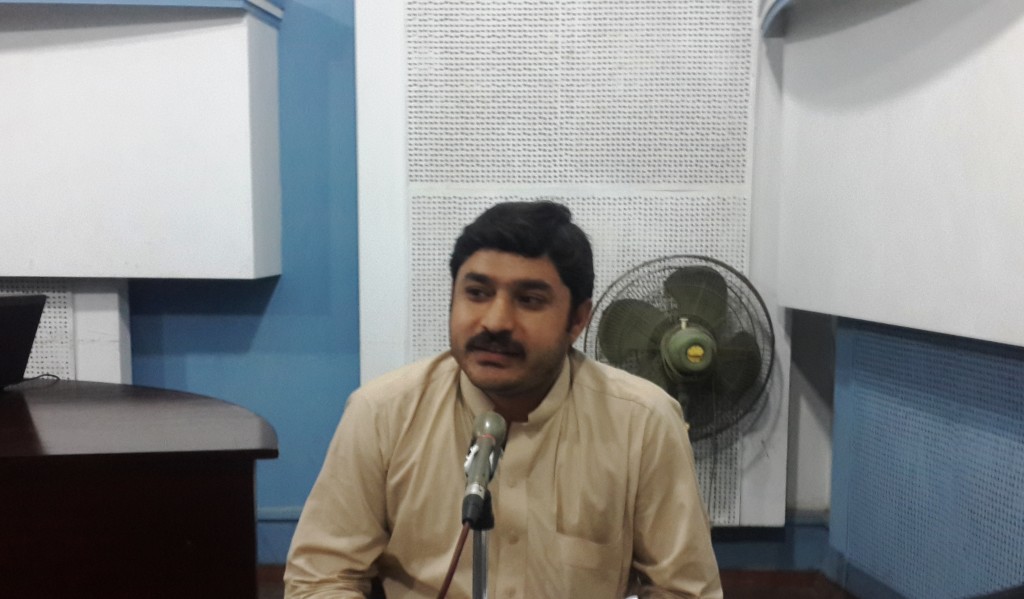April 18, 2016, Peshawar: The Center for Research and Security Studies’ (CRSS) flagship radio program Sabawoon’s latest episode was about the current status of female education in the Federally Administered Tribal Areas (FATA) and the role of FATA Secretariat in the education sector in FATA.
The key points of discussion included the current scenario of education, damaged schools and their reconstruction, lack of proper infrastructure for students, accommodation problems for female teachers, and aftermath of the army operations against militancy. Furthermore, the program highlighted female enrollment, and the mindset of the residents regarding females’ education.
The program aired under the theme of “Jarga Marraka” (debate and council), on Monday. Mr. Khan Malik Mehsud, President All FATA’s Teachers Association, Mr. Naseer Shah, General Secretary All FATA’s Teachers Association, and Mr. Asad Zia, a journalist from KP, were guests on the show.
Report on Girls Education in FATA:
The special report aired on the show highlighted the views of students, local residents, and the political administration about the prevailing situation of education in FATA and the plans of the government.
Ms. Maryam Bibi, a student of Government Girls High School (GGHS), Bara Khyber Agency, said: “We do not have a proper place where we can study. We are using a tent in our school which will create a problem for us in the summers.”
Ms. Saqina Naaz, student of GGHS Bara Khyber Agency, said: “In GGHS, there are two teachers currently while the number of students is above 500. Most of our classes take place in hujras and tents. We do not have basic facilities such as clean drinking water and washrooms.” The government mandated student to teacher ratio (STR) is 40:1; GGHs is at 250:1, severely hampering students’ ability to learn and engage with teachers.
Mr. Ghulam Khan, a local, said: “I have voluntarily provided my hujra for school use so their education continues. Since two teachers are not enough to handle a huge number of students that exceed 500, we have requested the education department a number of times to provide us more teachers; but it seems our efforts are in vain”.
Mr. Muhammad Arif, Assistant Political Agent, Khyber Agency, said: “We have reconstructed some of the damaged schools in FATA while the rest are in the process or reconstruction. It is a slow process so we have allocated tents until the construction is complete so the students can continue their studies.”
Nine callers took part in the live show. They requested the government to increase their work on the rehabilitation of damaged schools and the education sector in FATA.
Mr. Niaz Ali Shah said: “The enrollment in Mohmand Agency is still not satisfactory and the education department should keep a strong lookout for school development, which is beneficial for increasing the enrollment ratio.”
Mr. Laiq Khan, said: “It is a misinterpretation that the people of FATA do not want to educate their women. The issue is that how can we send our daughters to a school that is 3-4 km far from our houses?”
Mr. Muhammad Hamza, said: “There are very few teachers in a majority of the schools located in Khurram Agency. These schools are mainly used for gatherings and the government should concentrate on this problem.”
Mr. Khan Malik Mehsud, President All FATA’s Teachers Association, said, “The role of FATA Sectariat is nil as they are enjoying luxuries and do not pay heed to the problems in the education sector. The political administration is availing risk allowances yet they live in a safer zone while the teachers are not paid risk allowance. The students and the teachers are the ones who are making all the sacrifice.”
Mr. Naseer Shah, General Secretary All FATA’s Teachers Association, said, “FATA Sectariat completely depends upon the Management Information System software for data collection, which is not done by skilled people. They do not even visit FATA to collect the actual figures due to which there is a major difference between their data and the on-ground realities.”
Mr. Asad Zia, a Peshawar based journalist, said, “There is no transparency check on the management system in FATA. The on ground realities differ greatly from the data they have which is affecting the education sector to a great extent.”

